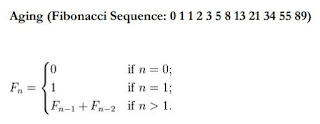Recently I have come to know another strong advocate of math-poetry connections. Marian Christie (read about her here) has had longtime interest in both mathematics and poetry and her blog -- available at https://marianchristiepoetry.net/ -- explores topics that include "Poetry and Fractals," "Poetry and Number Sequences," "Poetry and Permutations," . . . reflection symmetry and square poems and Fibonacci poems . . .. and lots more. Allow yourself time to explore when you visit https://marianchristiepoetry.net/.
When I am working with a group of students are nervous about their ability to write a poem, I often start by asking them to write a Fib, because it starts with single syllables, In her posting about Fibonacci poems, Christie offers this simple example of how the Fib structure can lead you to a poem.
I
like
playing
with patterns
in crochet, music,
poetry and mathematics.
If you are new to Fibs, try this CHALLENGE: using the same first two lines as Christie used above, create a Fibonacci poem. And then another ... and another.







